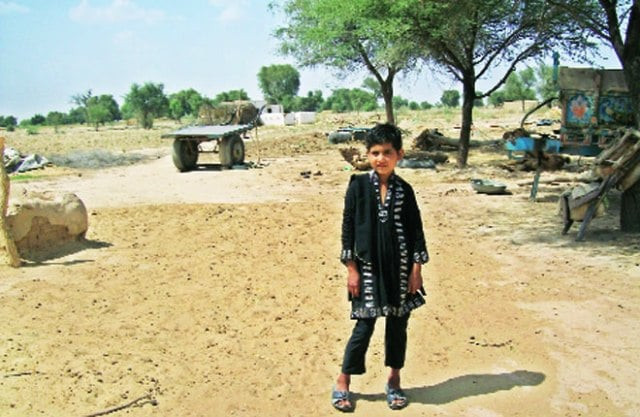The India-Pakistan conflict has spanned decades, keeping the news channels on tenterhooks with every turn of events. However, while years of struggling to keep each other at bay have taught the two political arch-rivals strategies to abate tension wherever possible, the media in both countries has largely refrained from employing any peacemaking tactics.
Newsmakers on either side jump at the prospect of magnifying any hint of strain in relations. Harping on how evil the other side has proved to be one of the most effective methods of attracting new audiences.
On either side, reports are one dimensional, biased and indifferent to the adversities that escalating tensions cause.
This is why The Indian Express’s recent portrayal of Pooja Meghwal’s adventure across the LoC comes as a pleasant surprise.
According to a news report by the agency, when three Pakistani security personnel stumbled upon a little girl who had cried herself to sleep on the wrong side of a barbed wire border, they arranged for a female caretaker for the girl and gifted her with a shalwar kameez suit along with a brand new pair of slippers. Three days after she got lost, Pooja walked back across the border that divides archenemies India and Pakistan, healthy, happy and full of stories about the care and love she had unexpectedly received.
The story has gotten a flurry of attention across social media, with people on either side of the border expressing surprise and delight over the friendship shown by Pakistani Rangers to an Indian child trespassing into their domain.
Indians and Pakistanis alike took the incident to heart, accepting it as much needed proof that the lines we draw on maps may not translate to our hearts and minds. The Indian Express’s impartial treatment of the story has proved not only a refreshing change, but also a terrific boost to public morale in both countries.
It is a reminder for everyone that relations between the two adversaries may not be as bad as we believed them to be all along.
Is it possible then, that the years of stiff, tense interactions between the two sides were made all the more difficult by the pessimistic hyperbole of our media?
Those of us who interact with people from across the border know that people in India and Pakistan share a common heritage as well as overwhelming similarities in culture, outlook and language. The much hyped enmity between us may just be a construct, emphasised year after year by attention seeking media channels.
One only has to refer back to the antagonistic rhetoric used in India after Pakistani forces retaliated to an Indian attack in Uri in January 2013, or the analogies made by Pakistani TV channels when T20 matches between both sides are referred to as “battlefields”.
It is not long before every encounter between the two leads to impassioned nationalism and inevitably, trash-talking. The reality is: instances of our media forwarding Indo-Pak cooperation are negligible. The Indian Express’s decision to show Pakistanis in a flattering light is a much welcome departure from tradition.
In this day and age, our media has huge leverage over how we feel and perceive events. What it chooses to emphasise or belittle can change the mood of the populace. It is about time our newsmakers understand that when it comes to India-Pakistan relations, populations in either camp would much rather see a compromise than a replay of tension.
When media channels decide to stray from the usual emphasis on conflict to give fair and honest space to so-called “enemies of state”, they remind people in both countries that there is more to their connection than years of dispute.
We need a desperate break from the negativity that our news channels assume must fill up the headlines. Giving feel-good stories like Pooja’s expedition to Pakistan due importance may do more to improve support for Pakistan-India relations than months of back and forth negotiations between politicians.
Let us take a different approach to India-Pakistan relations, please. Let us replicate the risk taken by The Indian Express by allowing equal, sincere room to the “enemy” in news stories.
While there are questions like Kashmir that may take much longer to be fully addressed, the benefits of a healthier relationship between the counterparts are huge. To name a few, Pakistan has a cement and sugar industry that can expand phenomenally through trade with their Indian counterparts. India has a burgeoning ICT sector that Pakistan can learn from.
If our news channels stop propagating extremist sentiments and help the peace process along instead, they may enable trade to increase by up to 10 times, and defence expenditures to be diverted to better causes.
More importantly, they may cause the people in both countries to feel relatively happier, safer and more confident about the future.
Read more by Areeba here.
When Pakistanis can love Indians and vice versa
The kindness of Pakistani Rangers to an Indian child was reported without bias. Kudos to The Indian Express.



COMMENTS
Comments are moderated and generally will be posted if they are on-topic and not abusive.
For more information, please see our Comments FAQ